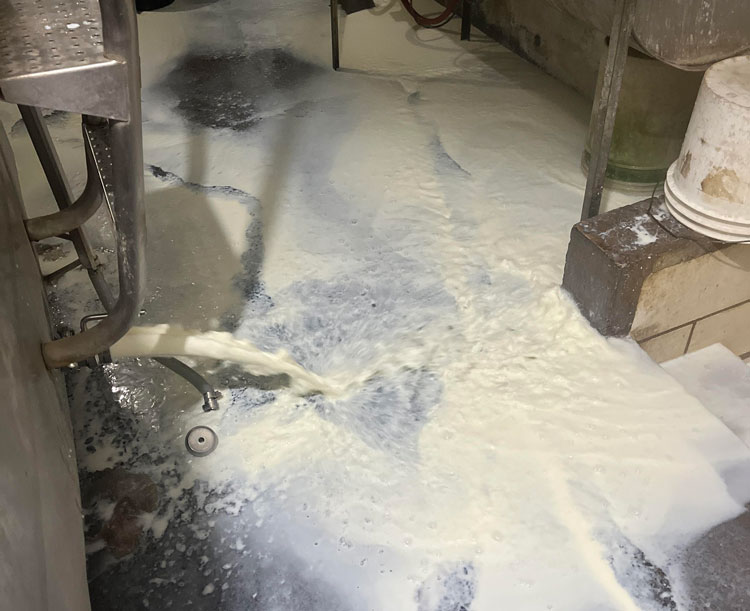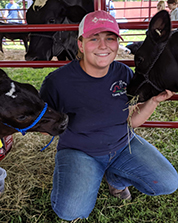
I’ve said this in other blogs before and I will continuously repeat it forever and always: I am only human. Unfortunately, being human means we make errors and mistakes that, although they may not be life threatening, are still upsetting at times. The other day, I did the one thing all dairy farmers dread having to do and try to avoid at all costs — I had to dump my bulk tank. The emotional turmoil of a voluntary dump is something no dairy farmer wishes to go through and is something like a punch to the gut.
For those unfamiliar with the dairy world, there are times where we have to dump the milk due to an accident or imperfection. Milk, at least where I am from, has to stay below 40°F and above freezing (32°F) in order to be shipped. Those eight degrees can make a huge difference in whether or not all the hard work was worth it.
Now, let’s talk about the “a” word: antibiotics. Organic farms do not use antibiotics and conventional farms, like ours, use them under very strict and costly regulations. Careful records explaining why we are treating the cow, what medicine we are using, and how much we are using must be recorded, and strict meat and milk withdrawal times must be followed. If there is any question about whether a cow is still what we call “hot” — full of antibiotics — the necessary tests must be run before her milk can be put into the bulk tank with the rest of the herd.
The other day, I forgot to turn on the tank coolers. When I came in the next morning, I noticed the switch was in the down position and started mumbling colorful words. I checked the milk temperature, and it read a hot 80°F. When I opened the lid, the smell of hot, steamy milk spoiling hit my nose and sent my stomach on edge. The milking from the night before was ruined. The only thing I could do now was measure the amount, call our co-op representative, and let the white, liquid gold swirl down the drain.
Milk co-ops will still pay farmers a percentage of what they lost if the farmer catches it before it goes on a trailer. In this instant, it’s called a voluntary dump, or as I prefer it, a voluntary heartbreak. Watching all your hard work go down the drain is gut wrenching. If I were to have shipped the milk, I would have most likely had to pay for the whole tanker load. That’s not economically okay any time of year.
Needless to say, dairy farmers have a lot to consider when it comes to the bulk tank. Careful records must be kept, refrigeration must be kept up with, and cows have to be healthy to be in the tank. The voluntary heartbreak may hurt and sting, but it saves us from a major financial and milk quality loss. Thank you to all the farmers that work endlessly to provide nature’s most perfect product. Stay safe folks.

The author is a sixth-generation farmer and fifth-generation dairy producer in southwest Virginia, where she and her family own and operate a 145-head Holstein dairy. Courtney is involved in agriculture organizations throughout her community and is a graduate of Virginia Tech.





